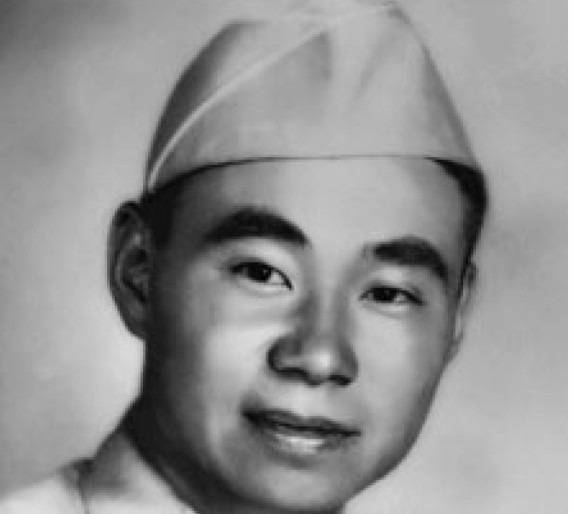Army veteran Richard Edlebeck died in 2006 with his decades-long wish unfulfilled.
During the Korean War, he formed a special bond with Wataru Nakamura. The two worked side by side while completing machine gun training in 1951.
Nakamura had shared his story with Edlebeck of being incarcerated during World War II with his parents and six brothers and sisters.
After returning home from the war, the Milwaukee Journal reports Edlebeck shared the story of Nakamura with his family and of Nakamura’s heroism.
Nakamura enlisted in the army for the 442nd Regimental Combat team in 1944 despite being imprisoned in a concentration camp. He would later return to active duty in 1950 for the Korean War.
He came under enemy fire after he volunteered to repair a damaged communication line.
“Immediately, without regard for his own safety and without waiting for help, Nakamura rushed the enemy with a fixed bayonet and single-handedly destroyed a hostile machine gun nest and drove the enemy from several bunkers they had captured,” the Army wrote.
He killed a total of four enemy soldiers hiding in their bunkers. After taking time to give a full report to his commander, he returned to the line of fire where he was mortally wounded by a grenade.
Edelman would later learn that Nakamura had been considered for the military’s highest honor, the Medal of Honor, but had been downgraded to a Service Cross.
According to the Journal, he made it his life’s mission to lobby for Nakamura to be awarded a Medal of Honor. He filed a Freedom of Information request to gather all the documentation he could find about Nakamura.
He worked tirelessly with his nephew who was an attorney to make his case. 
19 years after Edelman’s death, President Biden awarded Nakamura the Medal of Honor.
“After an attack on Pearl Harbor, he was forced to live in an internment camp, like so many other Japanese Americans,” Biden said, according to the Department of Defense. “But still, he signed up to serve our nation during World War II and the Korean War. During his last mission in May of 1951, single handedly he defended his unit from enemy attack, fighting until he was killed by a grenade.”
Edelman’s family learned about the award watching the news on television.
“He may have not been here to see that day, but I’m sure he was looking down and giving his final to salute to Wataru. It was his dream,” said Edelman’s daughter Rosalie Maass.
AsAmNews is published by the non-profit, Asian American Media Inc.
We’re now on BlueSky. You can now keep up with the latest AAPI news there and on Instagram, TikTok, Facebook, YouTube and X.
We are supported by generous donations from our readers and by such charitable foundations as the Robert Wood Johnson Foundation.
You can make your tax-deductible donations here via credit card, debit card, Apple Pay, Google Pay, PayPal and Venmo. Stock donations and donations via DAFs are also welcomed.


